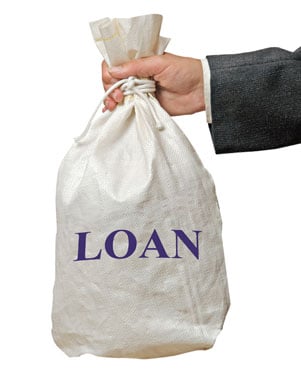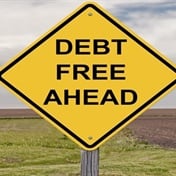
Johannesburg - South African consumers owe over R100bn. By late last year, household debt as a percentage of disposable income was above 76%, and we were using nearly 7% of our disposable income to pay off debt.
Some financial advisors talk in terms of ‘good’ debt and ‘bad’ debt. Our rund0wn of the different types of debt will help you to understand why:
Good
Your home loan
A home loan is one form of a secured loan – a loan which is made on the basis that the lender will be able to sell your asset should you default and not pay.
(Secured loans that use some other kind of fixed asset are not common. Aside from a home loan, secured loans may be taken out using your pension or provident fund, or a life insurance policy. While this can be useful in an emergency situation, it does put at risk funds that you or your family will need in the future, so is not recommended.)
There are three reasons why your home loan is a good debt:
The interest rate is usually quite low.* Your home is an investment, which over time grows in value. (Yes, the property market has been slow lately, but even with such blips, over the period of your bond, the value will rise substantially.)
* With a bond that gives you access to funds, you have an emergency facility for times of need. (This, however, can turn the home loan from good to bad if overused!)
*You can use your home as security for another secured loan.
Student loans
A student loan is generally offered at a relatively low level of interest, and is a Good Thing, because it prepares a young person to earn better in future. However, it can become a terrible burden:
* If the student fails to complete the qualification, the loan has to be paid back; with work hard to get, this often becomes the responsibility of the parents.* In many cases, the interest rate rises if you take a longer time to pay it back.
Vehicle finance
For many of us, a car is simply a necessity to be able to work. With interest rates in 2012/13 at historic lows, and good trade-ins on old cars due to a shortage of second-hand vehicles, the purchase of a car is within reach.
Things to bear in mind, however:
* If interest rates rise in future, your repayment will rise with them – be sure you have some flexibility to meet the increase.* The total cost of running a car is not the repayment, or the repayment plus petrol: you need to factor in insurance and maintenance as well. The average total cost for a very ordinary car is now well over R6 000 a month.
Bad
Personal loans
These are unsecured loans which usually attract a relatively high interest rate. You need to have a decent credit record to get a personal loan from your bank.
If you don’t pay the monthly repayment agreed upon, or if you don’t pay it back in full over the time period stipulated, the debt amount will rise rapidly thanks to compound interest – and you may lose your good credit rating.
That said, a personal loan can be useful in an emergency.
Retail accounts
A great way to buy things you need for home or your wardrobe; but many retailers charge a high rate of interest, and of course, if you default, you will lose your credit rating.
Credit card debt
A credit card allows you to buy products and services you don’t have the money for.
However, you are charged high rates of interest; there are penalties for late payments.
And since the credit available just rolls over every time you pay – meaning that your monthly payment simply pushes the amount of credit you can use back up – credit cards are a constant temptation to live beyond your means.
Microlender
Microlenders fall under the National Credit Regulator; registered microlenders are therefore controlled as far as the terms they offer are concerned, especially the amount of interest.
They do perform a valuable service, but if your borrow from a company which does not have the very best methods of assessing risk, a company which is a bit more ready to hand over the money, you could find your debt levels getting out of control.
Terrible
Loan sharks
When people are blacklisted or desperate for a loan, they’ll often turn to a loan shark.
Loan sharks such as the ‘Mashonisas’ (so-called because mashonisa means ‘to sink’, and once you’re in their hands, that’s what you do) usually operate illegally, they charge inordinate interest (it’s not unknown to pay 100% per month), they may demand to hold your bank cards and ID documents, and they are quite unscrupulous.
If you are considering taking out a loan with a loan shark, or if you know of anyone – family, friend, colleague or employee – who is considering this, don’t.
Add your voice on the Debt Issue:
*Ask our experts
*Share a personal story
*Write a guest post




 Publications
Publications
 Partners
Partners










